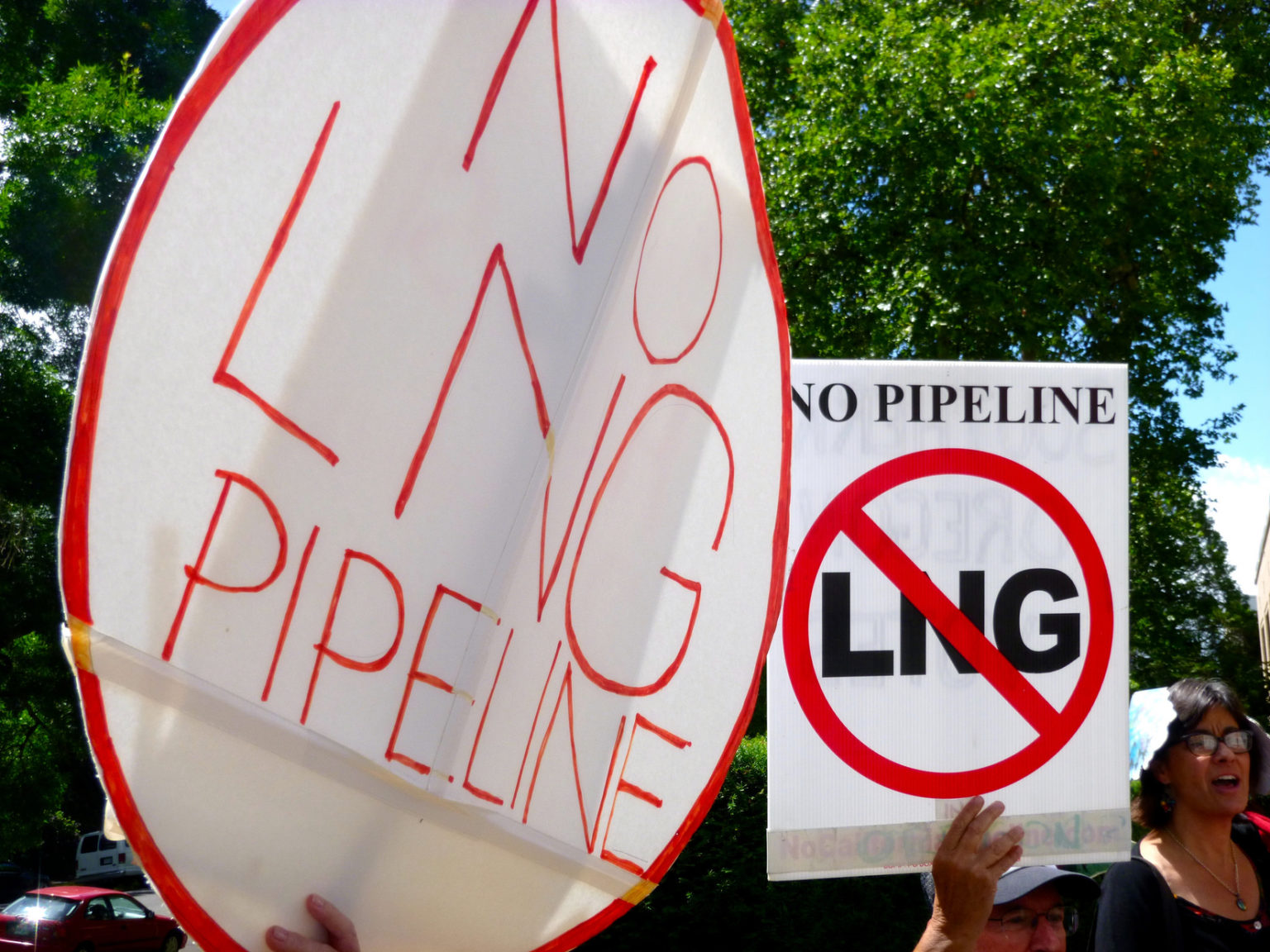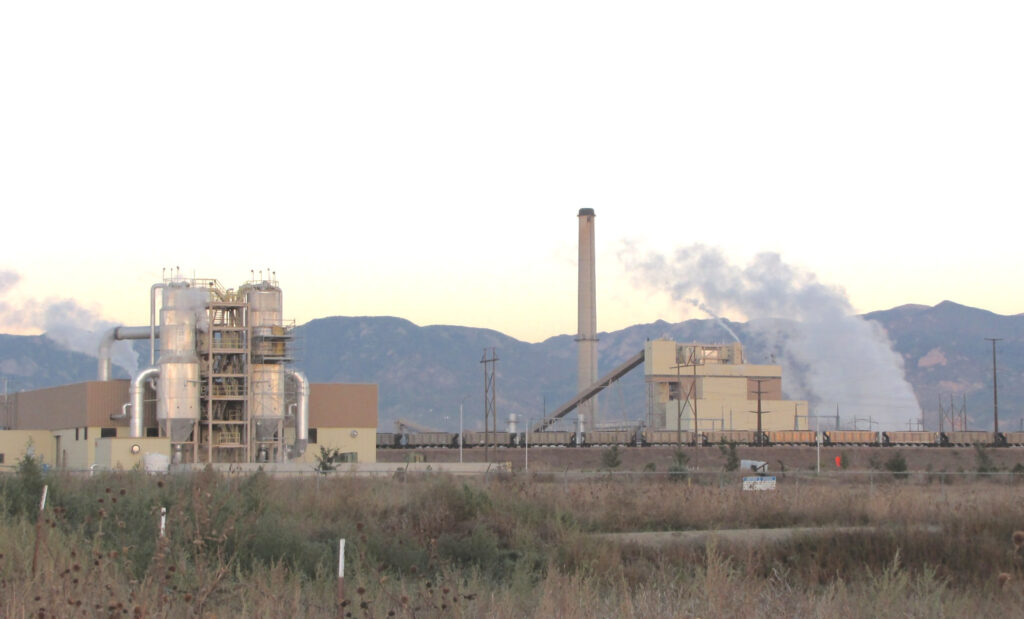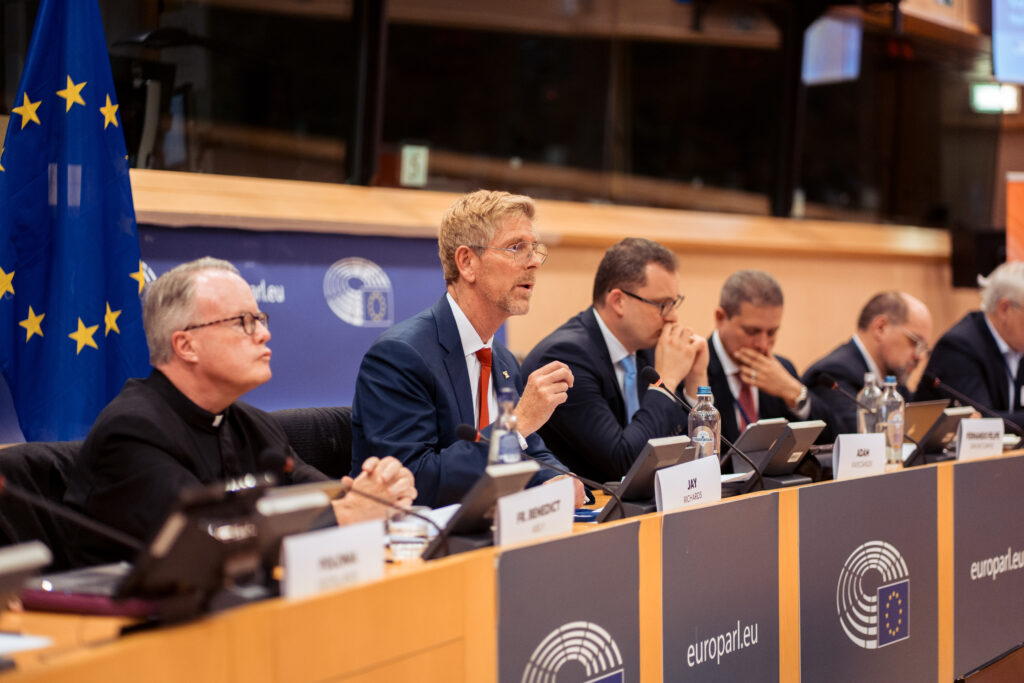Two weeks ahead of an Oregon county special election, backers of the multi-billion dollar Jordan Cove Liquefied Natural Gas (LNG) project are spending an additional $236,500 to prevent that vote from halting the proposed fossil fuel project.
That’s on top of the $359,000 the LNG project’s proponents had previously spent in an attempt to defeat the ballot measure, 6-162, in Coos County, Oregon, which reportedly has roughly 41,000 registered voters.
If passed, the “Coos County Right to Sustainable Energy Future Ordinance” would block not only the proposed LNG export facility and associated pipeline, but potentially any other fossil fuel projects after it.
Oregon Senators to Trump: “Review … without political interference”
The vote comes after more than a decade of legal and regulatory wrangling that culminated in the Federal Energy Regulatory Commission (FERC) rejecting the project in 2016. Now, the Trump administration is seeking to resurrect it.
“The first thing we’re going to do is we’re going to permit a LNG export facility in the Northwest,” said Gary Cohn, director of Trump’s National Economic Council, in April. “It’s been turned down twice already.”
The announcement came after the project’s then-CEO Don Althoff met with Trump and, later, Cohn to garner support for the project, which was owned at the time by Canadian energy company Veresen Inc. but sold to Pembina Pipeline Corp on May 1.
Following Cohn’s comments, Oregon Senators Ron Wyden and Jeff Merkley sent a public letter to the president “respectfully insist[ing] FERC carry out its review of Jordan Cove’s application without political interference from you or those in your administration.”
Anticipating Legal Challenges
Now, all eyes are on the local May 16 vote in Coos County that could throw a wrench in the whole process. Natural resource economist Hans Ratke told DeSmog that the ordinance and the legal fight it may start could seriously harm the project’s financial standing, which he says is already on shaky grounds.
The local group behind the ordinance, Coos Commons Protection Council (CCPC), knows it is challenging more than just the Jordan Cove project. Private corporations frequently sue to overturn local laws that threaten their bottom line. That’s why the CCPC and a Pennsylvania-based environmental law firm added language to the ordinance that takes clear aim at private corporations’ “rights” as “persons” under the law.
“Corporate claims to regulatory takings or future lost profits shall not be considered property interests under this ordinance,” the ordinance reads.
Following DeSmog’s previous reporting, Oregon Public Broadcasting and The Oregonian ran stories highlighting the unusually contentious southern Oregon ballot vote and the unprecedented money going into it. Since then, Jordan Cove has decided to double-down on spending, according to Oregon records released May 10.
Just a few days before the vote, ads and propaganda have been flooding the airwaves, claiming that, among other things, the ordinance would “[take] away our private property rights” and lead to “frivolous lawsuits.”
One ad claims that “as written, the measure will allow anyone to damage buildings or vehicles in the name of the environment.” Another says that “vigilantes are not responsible for damage they intentionally cause to private or personal property.”
Mary Geddry, a lead petitioner behind Measure 6-162, told DeSmog that the ad is proof “Jordan Cove is desperate, dishonest, or both!”
“They have gone from deliberately misinterpreting the ordinance language to just plain making stuff up,” she continued. “There is no such language in the Coos County Right to a Sustainable Energy Future Ordinance.”
The organization behind the ads, Save Coos Jobs Committee Political Action Committee (PAC), has not responded to a request for comment.
A Larger Battle
If the measure is passed, Jordan Cove may be in an awkward situation. Coos Commons Protection Council is a local branch of the Oregon Community Rights Network, which is preparing to push a 2018 statewide ballot initiative to amend the Oregon State Constitution.
The amendment would carve a new place for municipalities to raise state protections and elevate local laws above corporations’ legal privileges, which currently allow them to sue and overturn local laws. These changes would collectively allow Oregon cities to, for example, raise the minimum wage, regulate rent, and improve state environmental protections.
If the ordinance passes, Jordan Cove’s backers will have to decide: let the ordinance stand, or sue Coos County to overturn it. However, if they do sue, they risk drawing attention to the 2018 ballot initiative campaign and fulfilling their own election ad claims that the measure could bankrupt the county with lawsuits. All the more reason the project’s backers appear committed to defeating Measure 6-162.
Jordan Cove’s election spending and tactics raise a larger question facing communities across the country: Does every election have a price? Jordan Cove’s more than half a million in spending on a rural county ballot initiative vote may be one answer.
“They are obviously scared,” said Geddry. “They know the only way they can win the election is to buy it.”
As of May 12, 10,944 or 26.62 percent of the county’s ballots had been returned — by snail mail, drop boxes, fax, and email.
Main image: A sign from the rallies opposing the Jordan Cove LNG project on June 14, 2016 in Salem and Eugene, Oregon. Credit: Francis Eatherington, CC BY–NC 2.0
Subscribe to our newsletter
Stay up to date with DeSmog news and alerts






